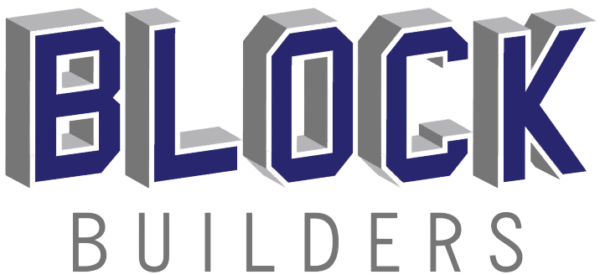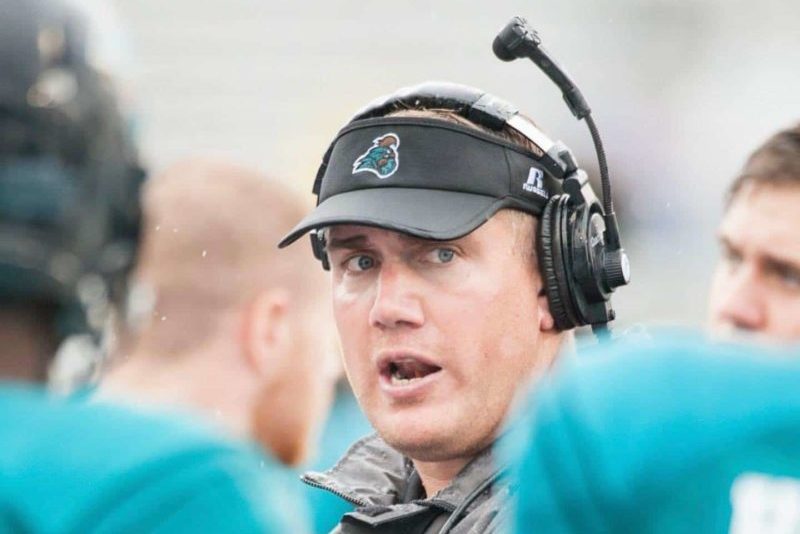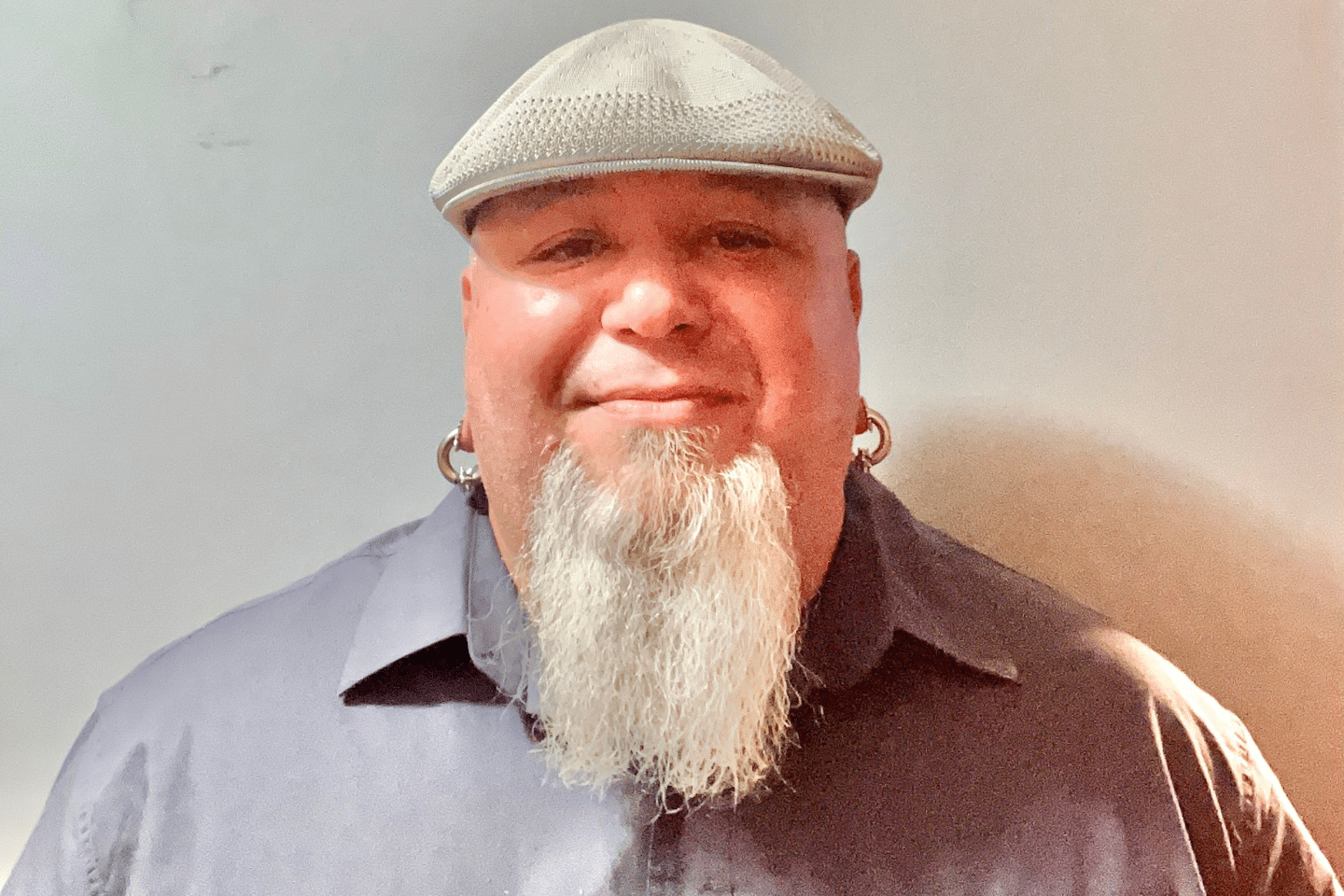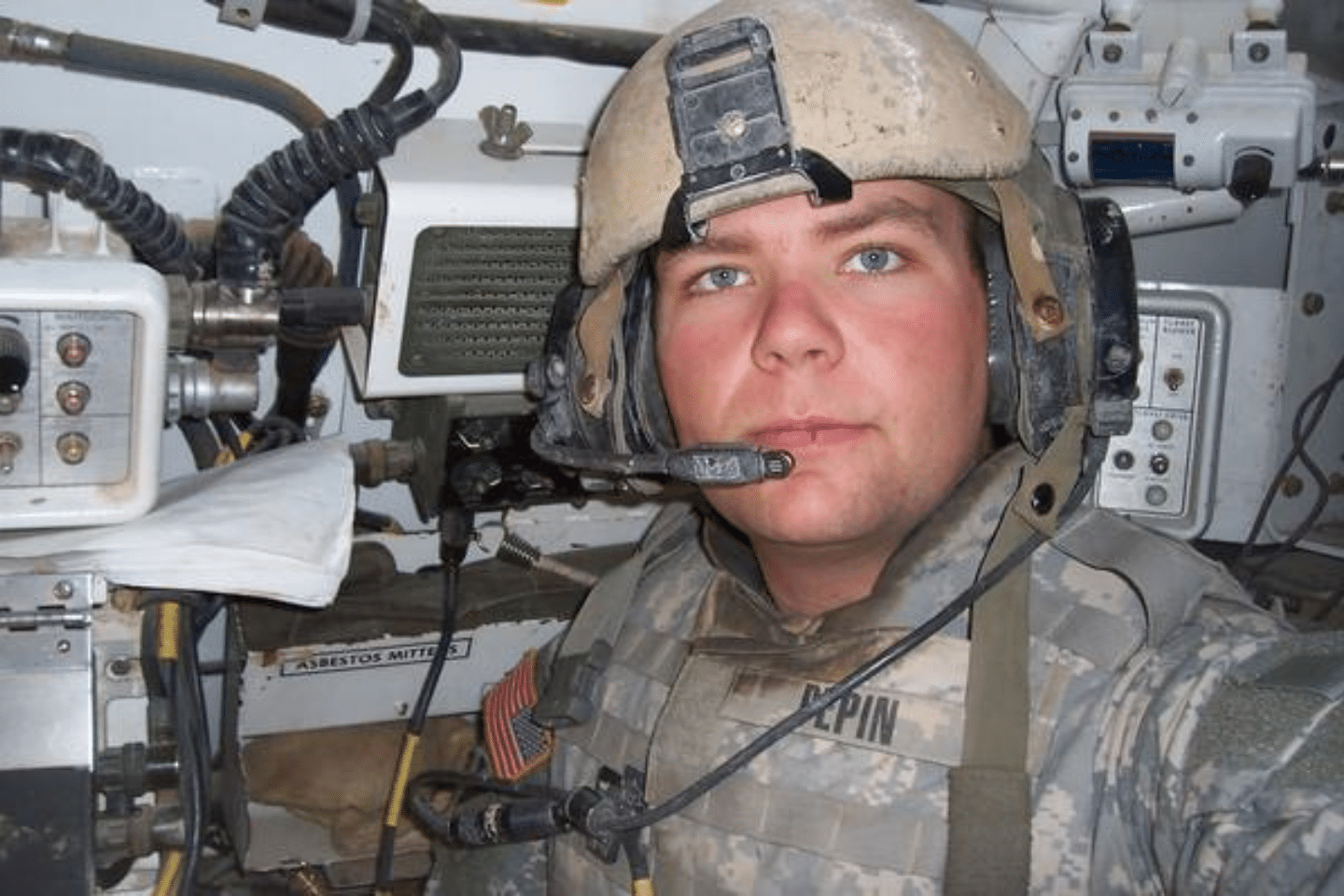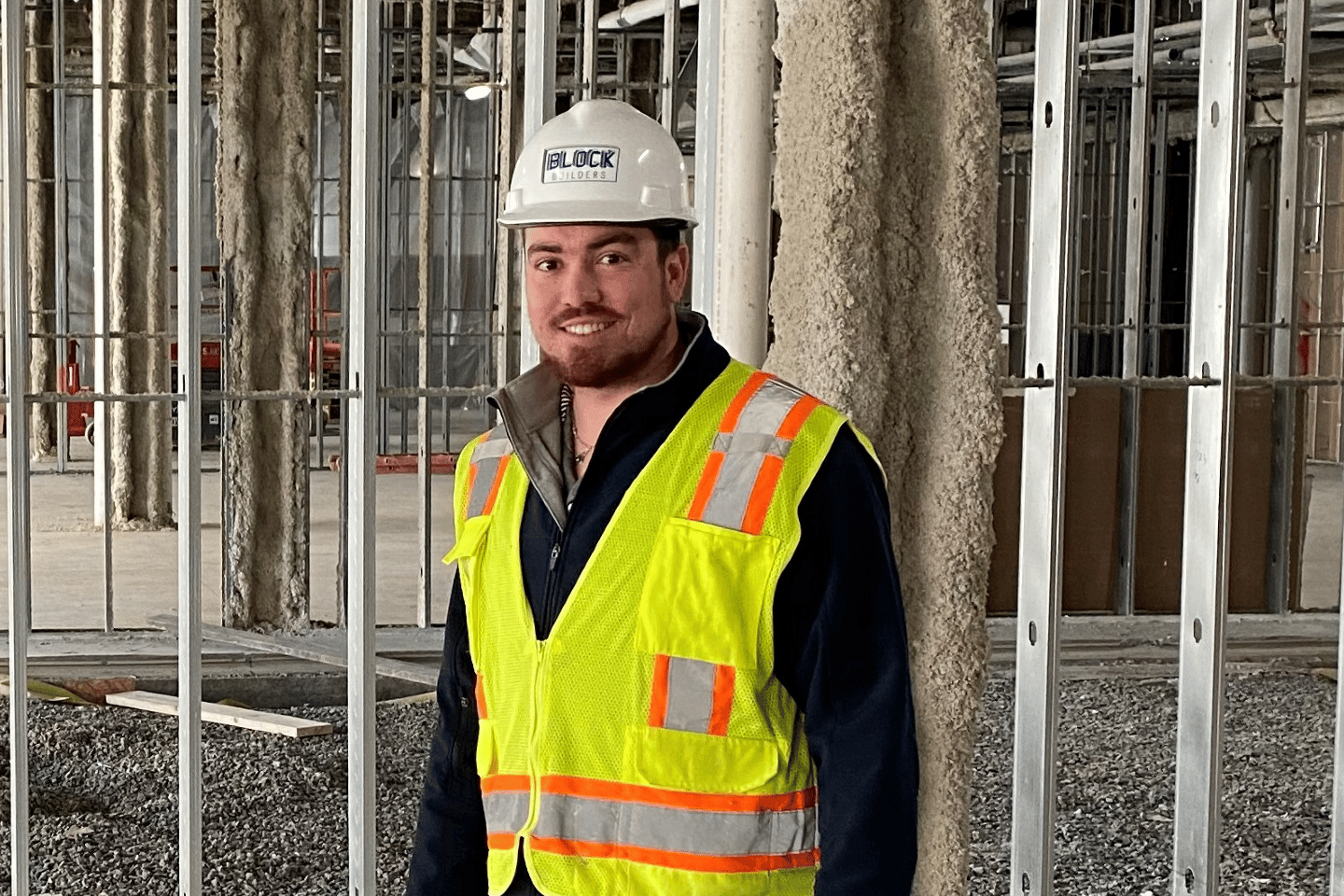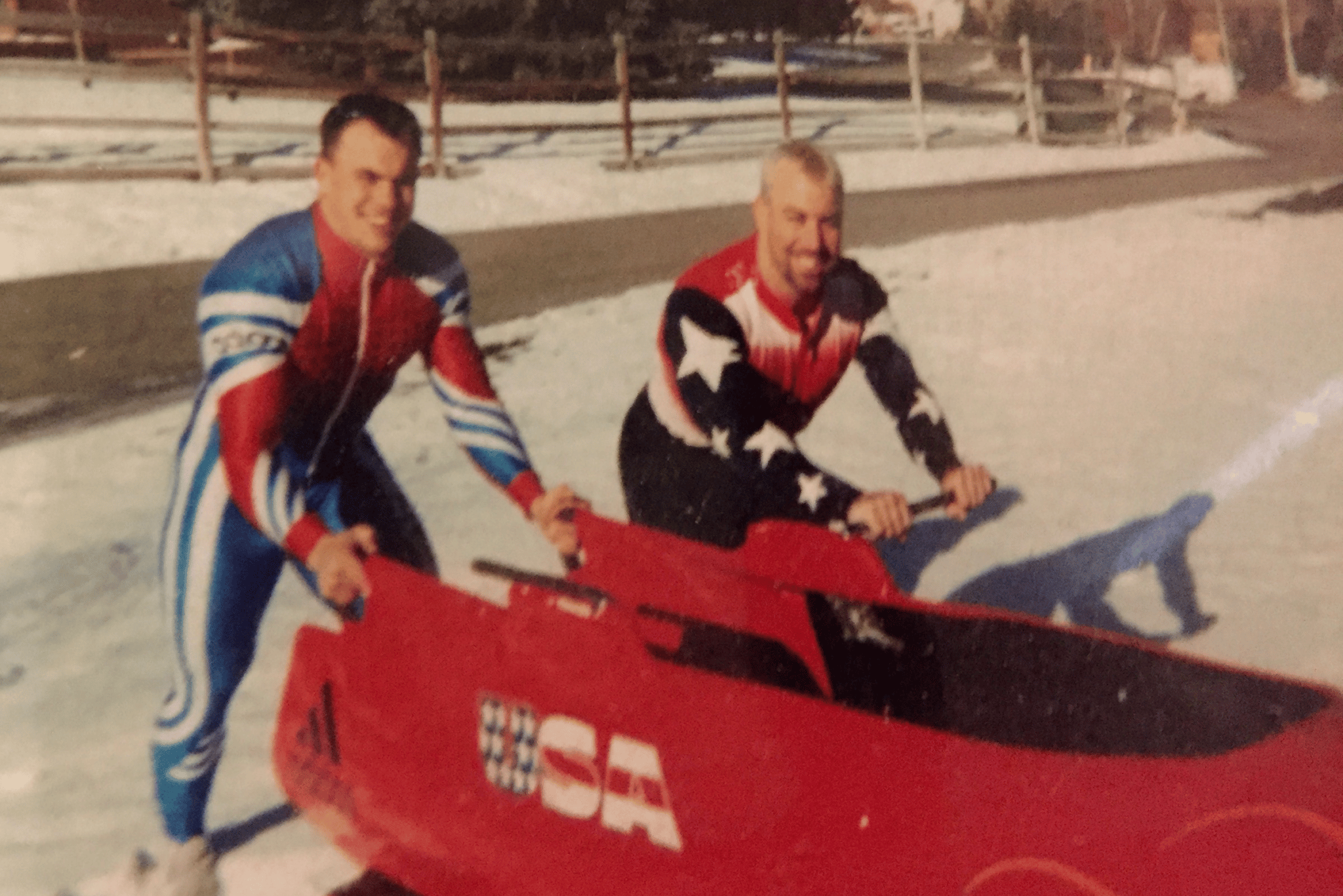After 18+ years as a college football coach, Cory Bailey went from coaching blocks to building them.
“When we take on a project on behalf of a client, it really becomes personal to me. It’s more than just fulfilling a contract.” For Cory Bailey, to take things personally always had profoundly deep meaning behind it. To him, it meant that you treated someone else’s dreams and goals with the same regard you would treat your own.
That emphasis on people was developed in him at a young age. While you may think it started on a construction site, watching his Dad treat the employees of his residential building company like family, it was on the football field that Cory’s passion for being a team player really flourished. His coaches for the Wrentham Pop Warner team and at Xaverian Brothers High School took Cory’s growth personally. Showing him the right way to practice, the right way to execute his assignment, and eventually – the right way to be a leader. “They were always tough on me, but I understood it was because they cared,” he remembers.
SAME GAME, NEW RELATIONSHIPS
In time, the game of football would take Cory to an entirely new environment, where there were fewer familiar faces and fewer people who had built a relationship with Cory as he grew from a young offensive lineman into a high school star. To make matters more hectic, that new environment just happened to be the biggest city in the world as Cory enrolled as a freshman football player at Fordham University in the Bronx. “It wasn’t easy at first. I remember it took me a long time to settle in,” Cory recalls.
Things started to improve the more he built a relationship with his offensive line coach, Fred Mariani. “Coach Mariani invested in me like a son and just showed me so much love from the day I stepped foot on campus.” Coach Mariani taught Cory so much about blocking schemes and the proper knee bend needed to execute a block, but even more about what a mentor looks like. “He was my biggest advocate. He encouraged me and made me feel confident that I could play at a high level, but he also knew how to get on me when I needed it.”
When Cory graduated from Fordham, Coach Mariani had helped him earn two spots on the All-Patriot League team, a spot as a team captain, and a team MVP award his senior year. Despite holding a degree in economics from a prestigious school like Fordham, Coach Mariani encouraged Cory to pursue his dream to play at the next level. That opportunity came with the New York Giants, where Cory spent some time going up against Michael Strahan in training camp before spending a season with the Rhein Fire of NFL Europe.
THE BIRTH OF A COACH
As it does for all athletes at some point, Cory’s playing days came to end after that season. Fortunately for him, however, his relationship with Coach Mariani had provided him an opportunity to start a new career and stay around the game he loved. Cory spent a year as an assistant under then Head Coach Mariani at Iona College in New York before feeling the urge to head back home and taking a job as the defensive coordinator at King Philip High School. From there, his coaching career took off. By 2004, he was the head coach at Assumption College in Worcester where he would lead the Greyhounds to their first-ever back-to-back winning seasons and victory over a Division I opponent (ironically, that win came against Fordham).
After Assumption, Cory took another Fordham alumnus up an offer to join his staff at Coastal Carolina University. In five years as the Defensive Line Coach & Recruiting Coordinator, Cory helped Coach Joe Moglia transform the Chanticleers from a middle-of-the-pack FCS team to a competitive FBS program. His recruiting efforts helped pave the way for Coastal to finish the 2020 season as a top 15 program in the nation. Many of the players he recruited or tutored as their coach now plays on Sundays in the NFL.
TRADING IN HIS HEADSET FOR A HARDHAT
Despite his success, it was a desire to come back home to Massachusetts and devote more time to his family, which ultimately drew Cory away from coaching and into a familiar business from the days of helping his dad as a youngster; construction. Yet even though that family history made him comfortable on the job site, there was something about his new field that bothered Cory deeply. “I found many people were more focused on the bottom line or simply getting projects done than they were on the people who had invested in them or their ultimate goals.”
“Part of the reason I wanted to start BLOCK was that I wanted to bring my experience building relationships and developing people from the football world to every project I worked on. I was lucky to find someone who had a similar mindset to Dan. That’s really how BLOCK was born, just us talking about ways to do things differently and better.”
So what personality traits does Cory carry over from his days roaming the sidelines to the job site? “I’d say it’s three things: taking our client’s success personally, developing a great culture amongst our team, and always having a tremendous sense of urgency.”
Cory says he sees a client’s project the same way he did a recruit. “If I’m going to bring someone’s project to our team, I’m going to take it personally and be their biggest advocate for success just like I would be for a student-athlete I recruited.”
It’s also no wonder that Cory is called Coach by most people on the BLOCK team, as he views it as one of his core responsibilities to create an environment where they can collaborate and achieve the same way he once did young athletes.
Finally, having a sense of urgency has been a calling card of Cory’s teams throughout his coaching career and he views construction no differently. “I like to think we treat every step of every project like 4th & Goal, and we’re going to fight, scratch, claw – whatever we need to do – to get into the endzone.”
